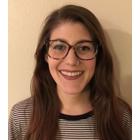 E-mail: acortez1@nd.edu
E-mail: acortez1@nd.edu
Language: Quechua
Location of Study: Cusco, Peru
Program of Study: Centro Tinku Intensive Quechua Program
Sponsors: The Kellogg Institute for International Studies, The College of Arts and Letters, and the Center for the Study of Languages and Cultures
Blog URL: https://sites.nd.edu/sla2018/author/acortez1/
A brief personal bio:
Amanda Daniela Cortez is a PhD Candidate in the Department of Anthropology. She received her BA degree in anthropology from the University of Washington (2014). Her academic interests lie at the intersection of race, gender, and multispecies relationships. Her current research project in Cusco, Perú, “Framing Women and Animals: Practices of Care as Re-Placement in Photography Tourism,” seeks to articulate the ways in which practices of care between Quechua women and their llamas, alpacas, and lambs allows women to resist violence and displacement from local police. She is also working toward graduate student minors in History and Philosophy of Science and Gender Studies.
Why this summer language abroad opportunity is important to me:
For 11 months, I have been working in Cusco with Quechua women and their llamas, alpacas, and lambs to understand how women and their woolly companions navigate exclusionary state development schemes such as tourism. Focusing on practices of care between women and animals who work in photography tourism, I track the ways in which care enables women to re-place themselves into spaces from which they are daily displaced. Due to the illegality of photography tourism work, women and animals who perform such labor face physical removal and erasure of their identity by local police agencies. In continuing to work with their animals in photography tourism, women render themselves and their identities present in Cusco. Gaining a deeper understanding of women’s work in photography tourism requires a working knowledge of Quechua. Although most women with whom I work also speak Spanish, Quechua is their preferred language and most conversations occur in Quechua. Expanding my knowledge of this Indigenous language is critical not only to my current dissertation project, but to my future as an anthropologist. After this project, I will continue to work in Cusco with Quechua-speaking peoples as a tenure-track professor of anthropology.
What I hope to achieve as a result of this summer study abroad experience:
With the assistance of an SLA grant, I hope to improve upon language skills that I began developing in 2016. Now that I have a foundation for grammar and vocabulary, I aim to advance my conversational abilities and comprehension of the spoken language. The Centro Tinku Intensive Quechua Program will help me to build the confidence I need in order to use Quechua in everyday activities.
My specific learning goals for language and intercultural learning this summer:
1. At the end of the summer, I will be able to conduct interviews in Quechua.
2. At the end of the summer, I will be able to transcribe and translate interviews in Quechua.
3. At the end of the summer, I will have a deeper understanding of the concept of ayni (which roughly translates to reciprocity) through conversations about the topic in Quechua.